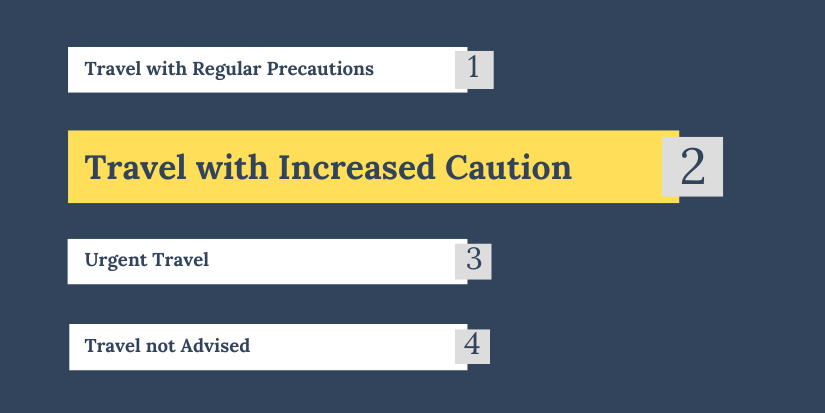
VISA REGIME
For holders of national passports and other travel documents: Visa required
For holders of diplomatic and official passports: Visa is not required for stays of up to 90 days
Note: Visa is required for the holder of an emergency travel document in transit
ENTERING AND LEAVING THE COUNTRY
Holders of passports of the Republic of Serbia need a visa which is obtained at the Embassy of Algeria in Belgrade (Serbia). There is no possibility to apply for a visa online (eVisa) or obtain a visa at the border crossing (on Arrival). Health insurance is not necessary, but it is recommended.
For the purpose of tourist travel, the passport must be valid for at least 6 months after the planned travel date. For the purpose of regulating one’s stay in Algeria, the passport must be valid for at least 6 months after the date of the relevant visa application.
It is allowed to bring into the country cash money in a reasonable amount to cover accommodation, food and local transportation fees. The amount of cash money that is being brought into the country is declared at the border, for which a certificate is issued. That same certificate also serves the purpose of taking cash money out of the country. No higher amount may be taken out of the country than that declared upon entry.
One litre of spirits and one box of cigarettes may be imported.
It is forbidden to bring into the country any weapons, including hunting weapons. Animals may enter the country, if accompanied by a rabies vaccination certificate and a veterinary health certificate.
SOCIAL SECURITY AGREEMENT
No social security agreement has been concluded.
USEFUL INFORMATION
HEALTH SITUATION — The health situation is generally good. There is no need for special vaccinations.
The locals use tap water, but foreigners mostly drink bottled water. In case of health problems, it is necessary to contact state hospitals or private clinics. The cost of a medical examination is around 10 euros. Current information on the health situation in Algeria can be found on the website of the World Health Organization: www.who.int/countries/dza/.
SECURITY SITUATION — Algeria is a country that has significant experience in the fight against domestic terrorism and Islamic radicalism. Although terrorist activities, especially in the cities, has been practically eradicated, occasional terrorist attacks of limited range are still being registered, which are primarily directed against the forces of order ― the police, the gendarmerie and the army. In certain localities in larger cities, street crime is present, which can take more aggressive forms in the evening. Foreigners who come to cities for a short period of time and adhere to general precautions have no reason for serious concern. For a longer stay, especially in the interior of the country, foreigners are advised to enquire well about the current situation before departure. Special caution is recommended in the southern parts of the country, especially in border areas. Unorganised individual trips are not recommended. All movements of foreigners in Algeria, outside the province (wilaya) in which the place of registered residence is located, are subject to the procedure of obtaining movement permits in advance. During organised tourist trips, travel agencies are obliged to ensure compliance with the mentioned procedures. The road network is relatively well developed, especially in the northern parts of the country, and the construction of the East—West highway (east towards the border with Tunisia, and west towards the border with Morocco), which has already been opened to traffic on 95% of the route, is nearing completion.
TRANSPORT — International airports are located in Algeria, Oran, Annaba, Setif and Constantine, whereas many cities in the interior of the country are connected by local air traffic. Railway traffic is more developed in the northern parts of the country, towards the Mediterranean Sea, whereas bus traffic is more prevalent towards the south.
An international driving permit is required to drive a motor vehicle. Gendarmerie controls on the roads are very frequent, and sanctions for traffic violations are severe.
OTHER INFORMATION — The official currency of Algeria is the Algerian Dinar (DZD). Money can be exchanged in banks. Exchange of foreign currency for local currency outside official places, banks and exchange offices is punishable and sanctioned.
The climate varies from Mediterranean to Saharan. In the north of the country, winters are rainy and cool, and summers are hot and dry. The climate along the Mediterranean coast is milder due to the proximity of the sea. The east of Algeria is characterised by more precipitation than the west. From the southern foot of the Atlas begins an arid region, dry and tropical with large temperature deviations ranging from 36 C ° during the day to 5 C ° at night.
In accordance with the customs in Muslim countries, it is necessary to adjust behaviour and habits, especially the dress code and during the month of Ramadan.
Contact information:
During your stay in Algeria, for consular assistance and protection, you may contact the Embassy of the Republic of Serbia in Algiers (address: Rue des Frères Benali Abdellah (former Parmentier), B.P.366, Hydra, ALGER), at the following numbers: 00 213 23 47 41 50; 00 213 23 47 41 51, emergency number: 00 213 77 06 97 077, and e-mail address: ambasada@ambserbie-alger.com.
